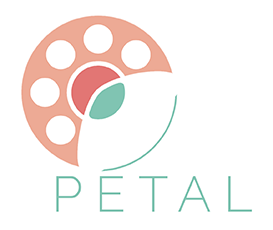

LARYNGECTOMY.NET
Social support of laryngectomised patients
You are a hospital, sector, national health insurance or healthcare network social assistant, you follow a person who is going to undergo a laryngectomy, you will find below some elements that will allow you to improve your intervention.
The social support of laryngectomised persons is an essential component of their care. The persons may have pre-existing social difficulties, or rendered vulnerable by the consequences of the surgery.
The detection of these difficulties should take as early as possible, preferably as soon as the therapeutic project is announced. An early social assessment would allow anticipating any future difficulties.
Before surgery:
Some of the persons encounter difficult social situations prior to the diagnosis. They can be different in nature: social isolation, occupational marginalisation, material and financial insecurity, housing-related problems, difficulties accessing rights or healthcare, difficulties with administrative management, familial complexities, addiction problems, etc.
A surgery and hospitalisation of about 10 to 15 days looms over this. This hospitalisation also needs to be prepared on a social level. We need to verify the access of the patient to a mutual health coverage for hospital stays. For patients with a professional activity, the procedures concerning the payment of sick leave must be anticipated as soon as possible. The surgery and its consequences on the voice will make all the administrative procedure much more complex. The person often enters a long term sick leave period.
Unemployed persons receiving benefits (ARE, ASS, ASP) must also submit paperwork to be placed in sick leave and obtain the right to sick pay.
The person will benefit from having social and family support. Hence, the family must be made aware of their role of caregivers and become involved as soon as possible.
Surgery
The post-operative hospitalisation discharge is still a phase in which social support is of great importance. In fact, in certain situations the life conditions are not very amenable to an immediate return home (especially in case of derelict and unfit housing). Once again the hospitalisation discharge project should be examined as early as possible. The evaluation of the living conditions of the person, both on a material and socio-familial level is crucial and will best enable the preparation of the discharge.
On returning home, either immediately after the stay in the surgery department or following a passage in the post-acute care department, networking between professionals and partnership working is essential, social workers have a major role in this.
Patients who live alone and are temporarily deprived of a means for communicating orally, require special attention. The implementation of warning tools may be very reassuring for the patient and the family (remote alarm system). Daily home life can also become temporarily more difficult, the use of various types of home help may be required.
From the health care process to post-treatment
Depending on any additional treatments to the surgery, staying at home could become problematic. Once again, the use of home help could be useful, as well as respite stays in a hospital setting.
The post-therapeutic period can also be complex on a social level. It is at that moment that active persons will have questions concerning professional re-integration. Thus, it is often necessary to contact the MDPH (Departmental Disabled person department), e.g. to be declared as having a disabled worker status.
The social service also ensures an essential coordination role for a return to employment and/or difficulties or impossibility to continue working.
Faced with these professional problems, it is essential that the actors coordinate themselves, especially as they may be numerous and have differing or even competing interests: hospital players (practitioner, social assistant, speech pathologist, psychologist, etc.), the national health insurance fund players (medical examiner, social service), employer, occupational medicine, etc.
The better the communication among all these players, the easier the professional re-integration will be.

